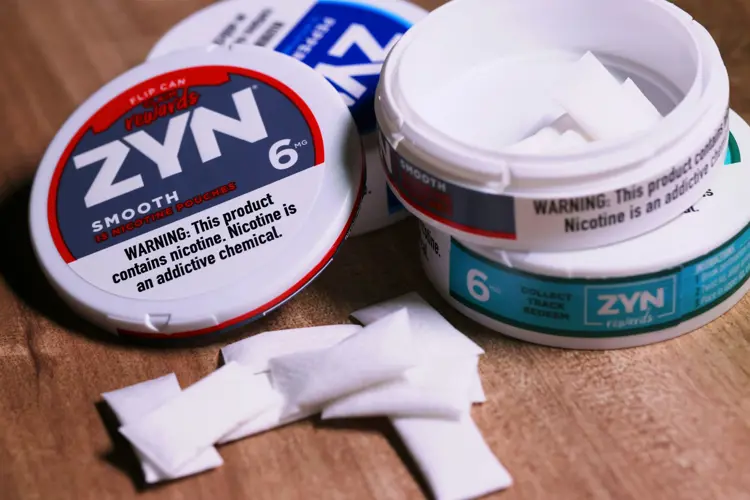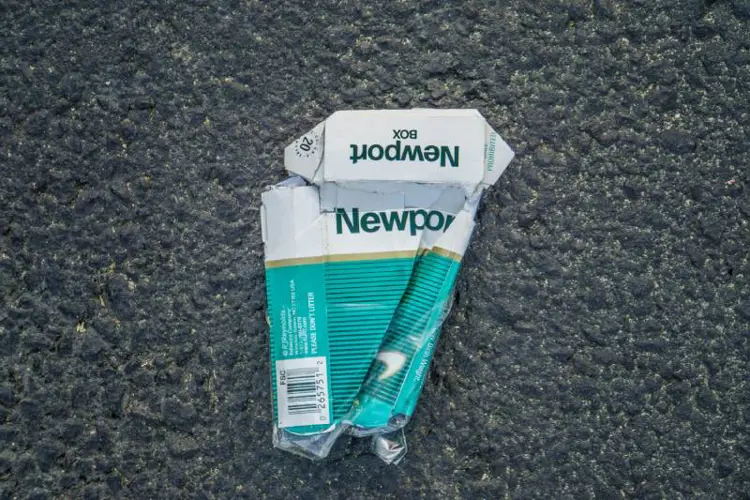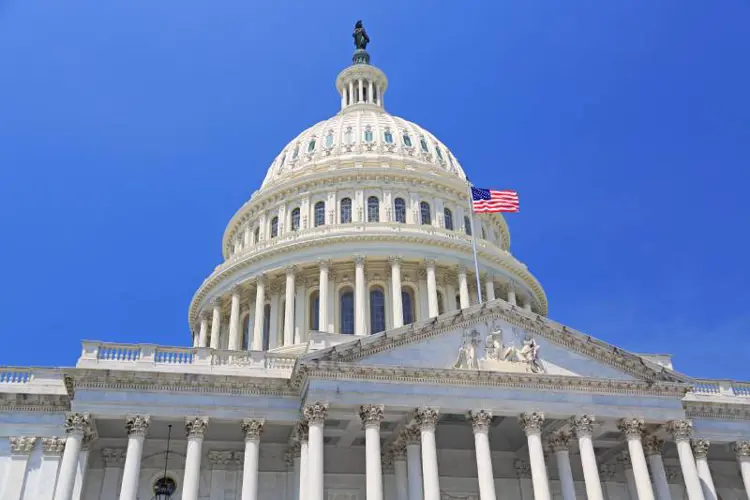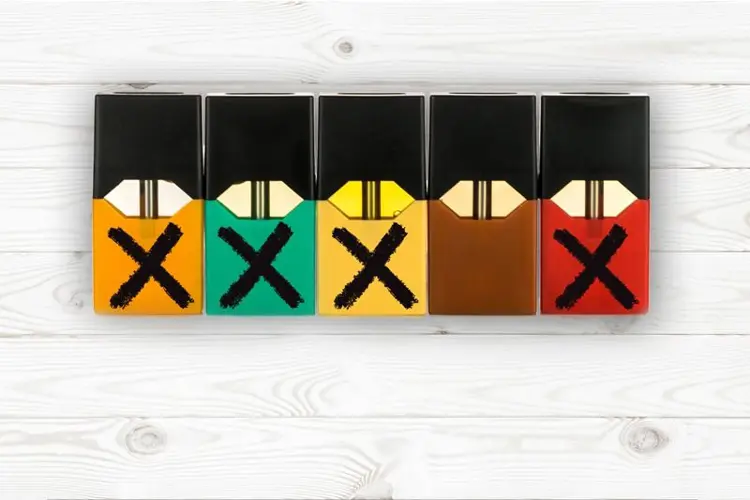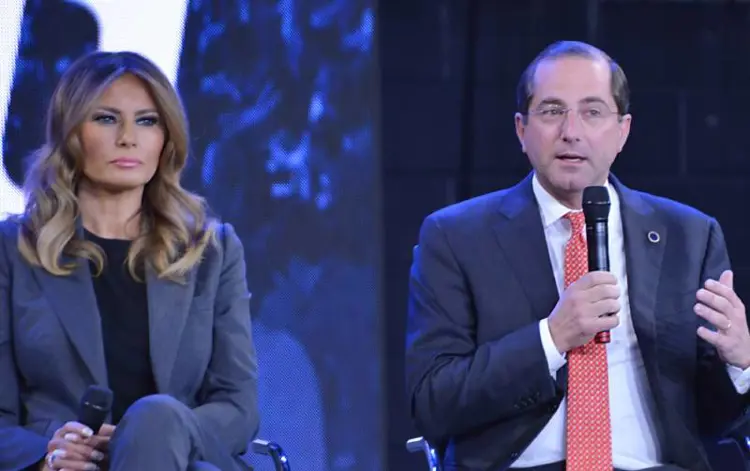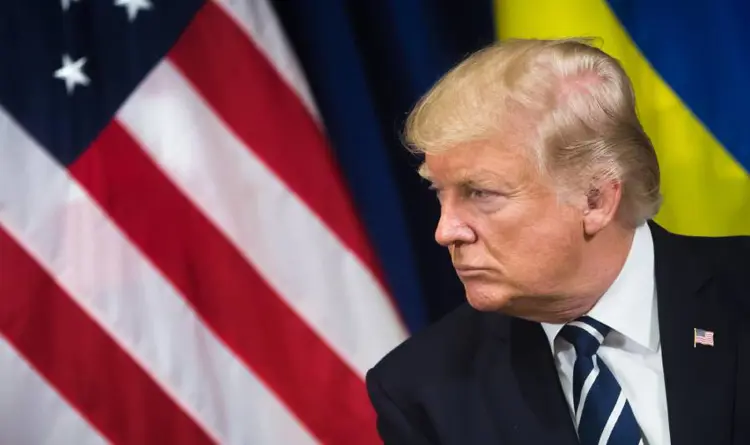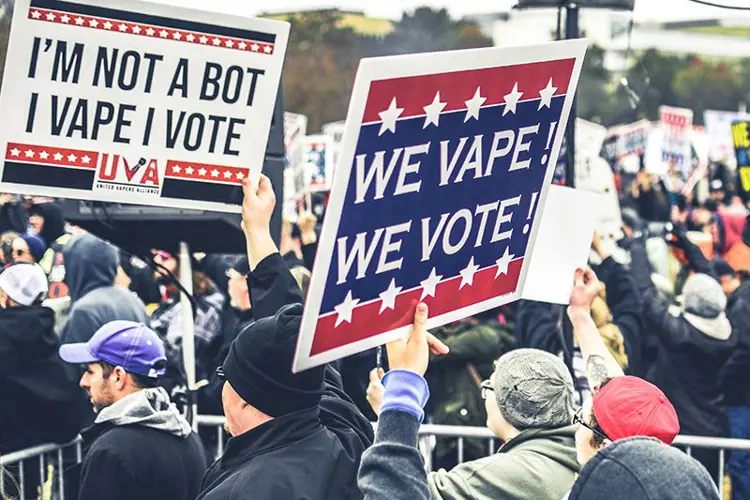A bill that would ban flavored vaping products and online sales in all 50 states will come to the House floor for a vote on Thursday, Feb. 27. House bill HR 2339—the Reversing the Youth Tobacco Epidemic Act— was introduced almost a year ago by Democratic representatives Frank Pallone of New Jersey and Donna Shalala of Florida.
When Vaping360 described HR 2339 last April, we called it “a bill designed to destroy the vaping industry.” While it would leave some vapor products made by tobacco companies and JUUL on convenience stores shelves, very few independent vaping businesses will be able to survive if the bill becomes law. It is hard to overstate how devastating this vape ban would be.
The bill includes a variety of provisions that will affect vapers, including:
- FLAVOR BAN Prohibits products containing “characterizing flavors” other than tobacco—unless they are specifically approved by the FDA and are proven to “significantly increase the likelihood of smoking cessation”
- ONLINE SALES BAN Prohibits all non-face to face sales
- FDA USER FEES Gives the FDA authority to collect $100 million in user fees from the vaping industry annually, which will increase prices
- SYNTHETIC NICOTINE REGULATIONS Orders FDA to regulate products containing synthetic nicotine
- ADVERTISING RESTRICTIONS Extends all FDA rules on the sales and marketing of cigarettes to vaping products, including advertising restrictions
The bill has 126 co-sponsors (members who have already indicated support). To pass the House, a bill needs 218 votes. Most observers expect HR 2339 to pass and move on to the Senate. That makes this bill a perfect test of vapers’ political strength.
With a huge last-minute push, the Pallone bill can be stopped. If every member of the House got a thousand emails from constituents opposing the bill, it would be stopped. Can vapers organize quickly enough to convince a half-million people to participate in the call to action over the next four days? If every vaper who takes the time to get involved convinces 10 other people to send emails to their reps, it can happen.
Before reading further, please act immediately to tell your House member to oppose HR 2339. The CASAA call to action linked below will send an email to your representative, and also to your Senators and the President. Just as important, please recruit family and friends to act—and share the information on social media, and at vape shops. The link is easy to remember: august8th.org
What is HR 2339 intended to do, and what will it do?
The sponsors of the bill believe that prohibition will prevent teenagers from vaping. Blinded by the dogma of anti-tobacco activists, they are ignoring real-world evidence that no drug prohibition has ever worked. Bans lead to black markets, which allow products of uncertain quality to proliferate.
Aside from the prohibition of flavored vaping products, HR 2339’s ban on menthol cigarettes will lead to large-scale smuggling by organized crime syndicates. No elected official who supports drug policy reform and opposes drug war-style enforcement should support such a bill. However, many of the co-sponsors claim to be progressive on drug policy.
“Congress must act to reduce youth nicotine addiction by making it clear that selling tobacco products to kids is illegal,” Rep. Pallone said last year. “My legislation also treats e-cigarettes and other tobacco products the same as traditional cigarettes under the law.”
The ban on menthol cigarettes doesn't take effect until a year after the law is passed, but the ban on flavored vapes would be imposed in just 30 days. That would force thousands of vape shops to shut their doors with millions of bottles of e-liquid still in their inventories.
Without our participation, the strident voices of the anti-vaping activists will win the day.
Congress passed a law prohibiting sales of vapes and tobacco to anyone under 21 in December. It’s unclear how moving the sales of flavored products to an unregulated black market would decrease youth use further. If anything, access to such products will probably increase, since illegal sellers are likely to ignore age-to-purchase laws. Further, National Youth Tobacco Survey data from last year proves that flavors aren’t a major reason kids choose to vape. Most do it out of curiosity—and nothing makes teenagers more curious than making a legal product into illegal taboo.
The vast majority of adult vapers prefer non-tobacco flavors, and there is no reason to believe they will obey an unjust law banning sales of the products they prefer. E-liquid is simple to make, and vapers will have access to a broad underground market of products made and sold by out-of-work e-liquid manufacturers. Hardware will remain available, since Chinese retailers will likely ignore an online sales ban. There is almost no kind of product used by vapers that can't be manufactured by someone in their basement with very little investment, or imported with little trouble.
Current legal sales channels—vape shops and online sellers—depend on offering a wide variety of products. It’s difficult to envision many vape shops staying afloat selling only the few products that would be legal if HR 2339 becomes law. E-liquid is the primary sales and profit driver in vape shops. Aside from the black market, many vapers will turn to DIY e-liquidif their preferred flavors are banned.
Just call it ``the Bloomberg flavor ban``
Billionaire Michael Bloomberg, now a Democratic presidential candidate, launched an anti-vaping initiative last September with the goals of banning flavored vaping products, pushing the FDA to impose PMTA requirements quickly, and banning or restricting online sales. The program, called “Protect Kids: Fight Flavored E-Cigarettes,” included a $160 million fund administered by the Campaign for Tobacco-Free Kids.
“When it comes to individuals who have committed their lives to protecting kids from the dangers of tobacco products, Michael Bloomberg is second to none," said Tobacco-Free Kids president Matthew Myers at the launch of the initiative. "We are deeply honored to partner with Bloomberg Philanthropies on this initiative."
The Bloomberg funding has been used by Myers and Tobacco-Free Kids to create and support a formidable network of organizations, websites, online and broadcast advertising, lobbying, school programs, and planted editorial and news content. Their efforts are backed by the usual array of large tobacco control groups, including American Academy of Pediatrics, American Cancer Society, American Cancer Society Cancer Action Network, American Heart Association, American Lung Association, the CDC Foundation, Truth Initiative, CVS Health, and every organization funded by or aligned with Bloomberg Philanthropies.
Whatever any member of Congress thinks about vaping, dealing with a large number of angry constituents is something none of them want.
The only effective way to beat such a powerful and well-organized propaganda juggernaut is with unrelenting grassroots opposition. If hundreds of thousands of vapers—and vapers’ family members, friends, and employers—take five minutes to engage through the call to action, members of Congress will be forced to pay attention.
If vapers cannot mobilize to fight this threat, the bill is likely to pass and move to the Senate. In the current anti-vaping atmosphere, it isn’t certain what will happen there. There is already an active Senate bill (which has already passed the House) that would eliminate U.S. Mail shipping of vaping products. It has 27 committed votes already, including 14 Republicans, and only needs 51 votes to pass.
Vapers have no help on this. The tobacco companies and JUUL no longer sell flavors, and they don't care about protecting online sales. Altria and RJ Reynolds will agree to anything to get House leaders to drop the menthol cigarette ban from the final bill.
At this point, there is no substitute for massive numbers of emails and phone calls to every congressional office. Whatever any member of Congress thinks about vaping, dealing with a large number of angry constituents is something none of them want. It’s up to those with the most at stake—vapers and vaping businesses—to push legislators in the right direction. Without our participation, the strident voices of the anti-vaping activists will win the day.
The Freemax REXA PRO and REXA SMART are highly advanced pod vapes, offering seemingly endless features, beautiful touchscreens, and new DUOMAX pods.
The OXVA XLIM Pro 2 DNA is powered by a custom-made Evolv DNA chipset, offering a Replay function and dry hit protection. Read our review to find out more.
The SKE Bar is a 2 mL replaceable pod vape with a 500 mAh battery, a 1.2-ohm mesh coil, and 35 flavors to choose from in 2% nicotine.
Because of declining cigarette sales, state governments in the U.S. and countries around the world are looking to vapor products as a new source of tax revenue.
The legal age to buy e-cigarettes and other vaping products varies around the world. The United States recently changed the legal minimum sales age to 21.
A list of vaping product flavor bans and online sales bans in the United States, and sales and possession bans in other countries.







